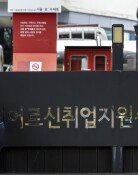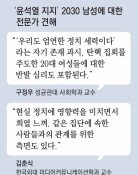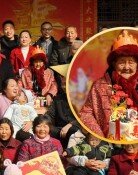Effects of Asian Financial Crisis Linger in Korean Psyche
Effects of Asian Financial Crisis Linger in Korean Psyche
Posted November. 12, 2007 06:16,
A decade removed from the Asian financial crisis, research has revealed that nervousness, mistrust, and social divisions still comprise a large portion of national consciousness, even though Korean society may seem normal on the surface.
It was also revealed that there have been great improvements in the levels of Koreas democratic consciousness and openness to the outside world.
In a report titled A Decade After the IMF Crisis, How Has the Korean Society Changed? released by the Institute for Social Development and Policy Research of Seoul National University (director, Jeong Jin-seong), sponsored by Dong-A Ilbo and SBS, and disclosed on November 11, analysts compared 8 existing documents, including a poll on 1,005 adults of both sexes nationwide held by Gallup Korea under a commission from the Institute for Social Development and Policy Research between September 11 and October 11, and a study on the consciousness and practices of modern Koreans carried out by the same Institute in 1998 (95 percent reliability, ±3.1 percent sample error).
According to this research, the national trauma incurred by the financial crisis was serious enough to be described as a the lost decade separately from the ideological debates going on in Korean politics.
The report disclosed that many Koreans experienced anxiety after the crisis due to weakened incomes, assets, job stability, and family bonds. The systemized anxiety led to an expansion in materialism, and the number of people who pointed to money and academic backgrounds as preconditions for success increased from 35.8 percent to 60.5 percent, and from 15.3 percent to 36.4 percent, respectively, compared to a decade ago. The number of people who pointed to the importance of individual efforts fell from 38.2 percent to 24.2 percent, and the number of people who pointed to the importance of social network fell from 36.9 percent to 21.4 percent.
Mistrust of both social systems and organizations also grew according to the report. The number of people who believed in the credibility of the government in the poll fell from 34 percent to 30 percent. Institutions with the lowest credibility ratings were political parties (2.9 percent), the National Assembly (3.2 percent), the administration (8 percent), and the judicature (10.1 percent). Among non-government institutions, reliability on civil organizations dropped most significantly, from 48.8 percent to 21.6 percent.
The percentage of people who regard themselves as middle class nosedived from 41.1 percent right before the crisis to 28 percent. On the other hand, 55 percent of respondents answered that democracy showed improvement over the past decade, and only 17.9 percent answered that it degraded, showing that democratization in the South Korean society is here to stay. Support for marriage immigration (35.6 percent) was higher than the opposition (20.9 percent), indicating a greater openness to the outside world among Koreans as well.
confetti@donga.com







